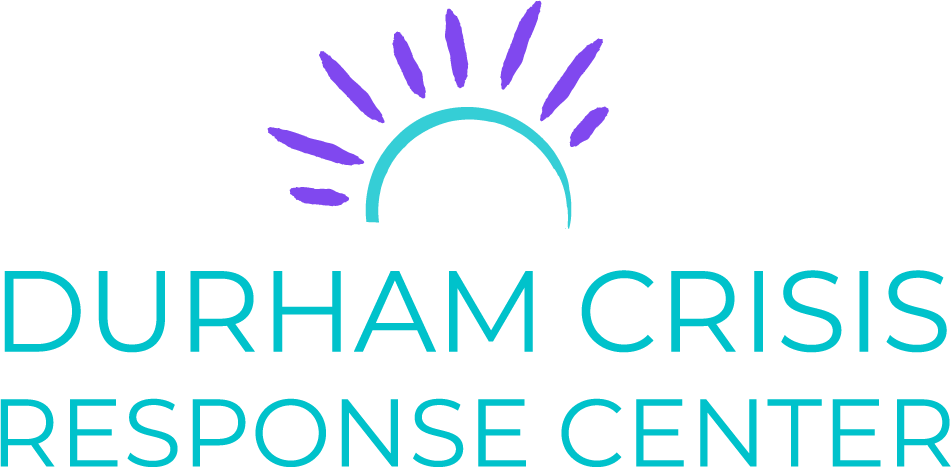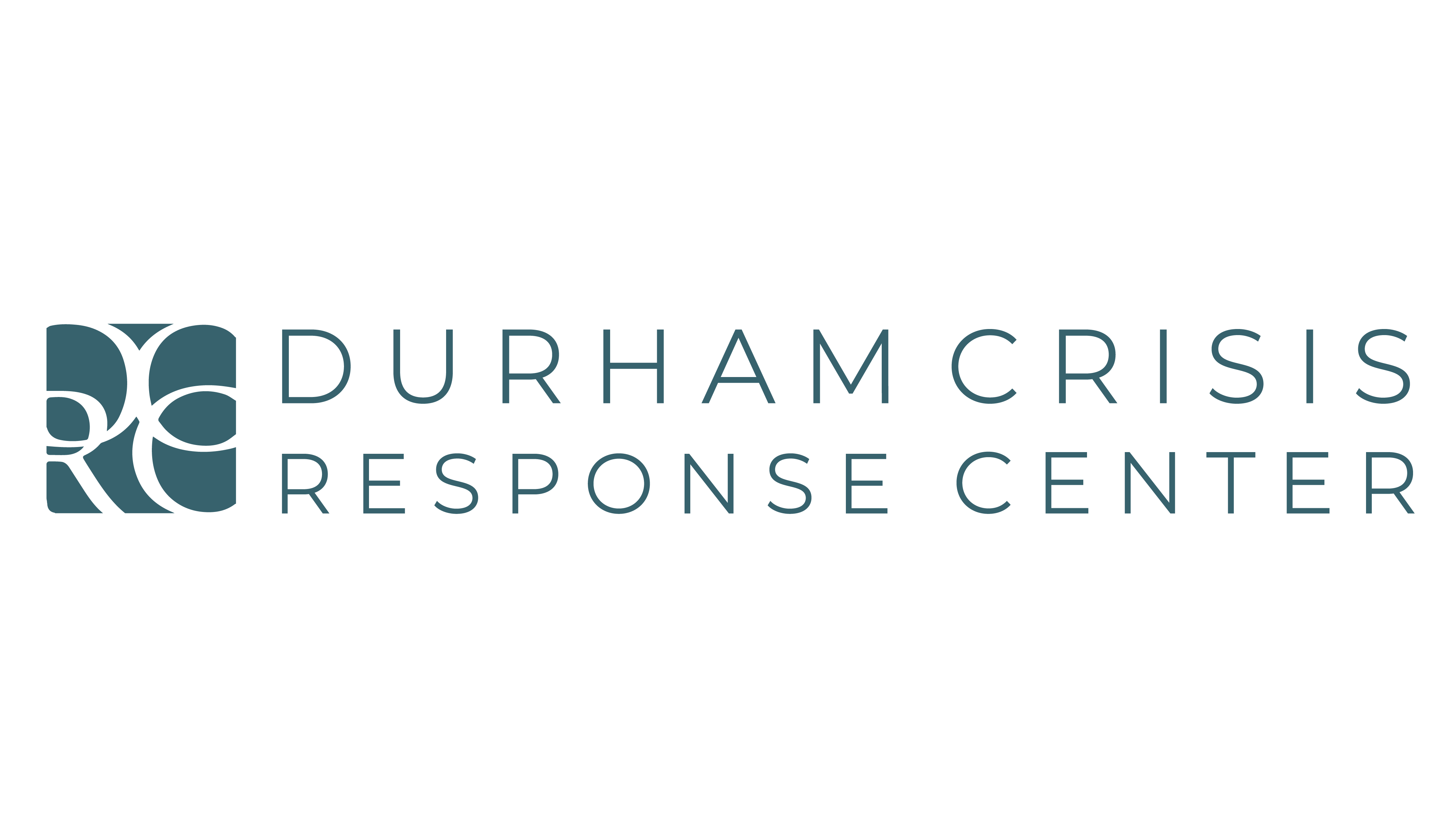Survivors of Sexual Assault
DCRC provides trauma-informed, survivor-centered services to clients after experiencing assault. If you need help, we are here to help.
What to Do if You Are Raped or Sexually Assaulted
IF YOU ARE IN IMMEDIATE DANGER, CALL 911.
If you are a Durham County resident you can also send text messages to 911.
Durham residents and visitors who are also Verizon, AT&T, Sprint, and T-Mobile customers can send a text message to 911 for emergency help. Sprint customers only may also attach a photo to their 911 text. Please visit the Durham Police Department web site for more information:
Go to a safe place. This is not the time to be alone. At the very least you need emotional support. If there is no one to talk to, then call someone you can talk to, no matter how late it is. (See places where you can get help.)
Get medical attention. As soon as possible, go to the emergency department of the nearest hospital to be examined and treated for any injuries, sexually transmitted infections, and emergency contraception. Going to the hospital does not mean you have to talk to law enforcement. If you do decide to report to the police, physical specimens collected soon after the rape will be valuable evidence.
-
DO NOT SHOWER OR WASH YOURSELF
-
DO NOT EAT, DRINK, OR SMOKE
-
TRY NOT TO USE THE BATHROOM
If you decide to report, good “evidence collection” is key to prosecuting. If you do not want to file charges, you may still go to the Emergency Room and receive medical care. If you do not know whether you want to file charges yet, you may go as if you were filing a report. You can talk to the police and give all the information you have about the assault, but withhold your name and other personal information. This “Blind Report” will not be investigated until you call the police to let them know you wish to continue the case.
Give yourself permission to feel whatever it is you are feeling. Make space for healing. You have been through a trauma and need to make space for your own emotional, physical, psychological, and spiritual healing. You may be overwhelmed by many different emotions – fear, grief, guilt, shame, rage. It is important to seek support. There are many different options, such as talking with an advocate at Durham Crisis Response Center, joining a survivors group (offered at Durham Crisis Response Center) or talking with a friend. People who receive counseling tend to recover from their experiences faster and with fewer lasting effects than those who get no help. Recovery from rape doesn’t mean that it’s as if the rape never happened. Recovery does mean that, over time, the survivor is not thinking about the rape-their emotions are not dominated by it. The survivor is able to envision a future, to set goals and work to achieve them. Their life moves forward.
Do not blame yourself. Be compassionate with yourself. You need to be assured that you are not to blame for the rape. Regardless of what you were doing, who you were with, where you were, or what time it was, there is never an excuse to accept rape as a consequence. Even if you believe you were naïve, not cautious, or even foolish, it is not your fault. Your behavior did not cause the rape; the rapist caused the rape. What ever you did to survive was exactly the right thing to do.
If you are unsure what you want to do after experiencing a sexual assault, you can call our 24-hour confidential and free help line :
919-403-6562
Survivor-Centered Services
Staff and Volunteers alike are trained to meet survivors at any stage of their journey. Below are just some of the emergency services we provide our clients
Emergency Temporary Shelter
Hospital Response
Legal Advocacy
Emergency Temporary Shelter
DCRC’s emergency shelter gives clients a safe and supportive environment where they can begin to recover from the effects of domestic violence.
Shelter staff offer case management and counseling, as well as assistance with legal, housing, and employment needs. Spanish-speaking staff are available.
Our shelter does not discriminate based on gender-identity, age, or sexual-orientation.
Hospital Response
Trained staff and volunteers engage clients in the aftermath of violence, Hospital Responders do so in the ER of Duke Regional and Duke University Hospitals.
Advocates accompany survivors throughout interactions with medical professionals, law enforcement, and/or Sexual Assault Nurse Examiners (SANEs).
We ensure survivors have a follow up plan to reach counseling, legal advocacy, or anything else they may need.
Legal Advocacy
Legal aftermath may seem daunting following violence or abuse. DCRC advocates inform, support, and accompany victims of domestic and sexual violence throughout the criminal and civil justice system.
Legal Advocates are NOT attorneys, and therefore cannot provide legal advice or representation. Advocates may answer questions about what to expect, explain available options, and accompany survivors through criminal or civil process to ensure their rights are protected
Advocates refer survivors to other DCRC services, assist with safety planning, and connect survivors to other community agencies.
Education, Training, and Rape Prevention
Outreach staff conduct workshops about domestic and sexual violence, sexual harassment and date rape prevention.
DCRC works to reduce incidences of sexual violence in our communities. Rape prevention education impacts attitudes, beliefs and behaviors that lead to sexual violence.
Prevention workshops are available for:
- Local schools
- Community groups and professionals
- Community service providers, including local law enforcement and medical personnel.
DCRC provides displays for community events as well, please call 919-403-9425 for more information.

Durham County Response Teams
Domestic Violence Response Team (DVRT)
The Domestic Violence Response Team (DVRT) is a multidisciplinary teams of community members partnering together to provide inter-agency, coordinated responses to domestic and sexual violence.
Local collaborators include:
- DCRC agency staff
- Social services program staff
- Medical personnel
- Local law enforcement
These teams build communication and collaboration to ensure a transition from victim to survivor for every individual whose life is impacted by domestic and sexual violence.
Sexual Assault Response Team (SART)
The Sexual Assault Response Team (SART) is a multidisciplinary teams of community members partnering together to provide inter-agency, coordinated responses to domestic and sexual violence.
Local collaborators include:
- DCRC agency staff
- Social services program staff
- Medical personnel
- Local law enforcement
These teams build communication and collaboration to ensure a transition from victim to survivor for every individual whose life is impacted by domestic and sexual violence.


